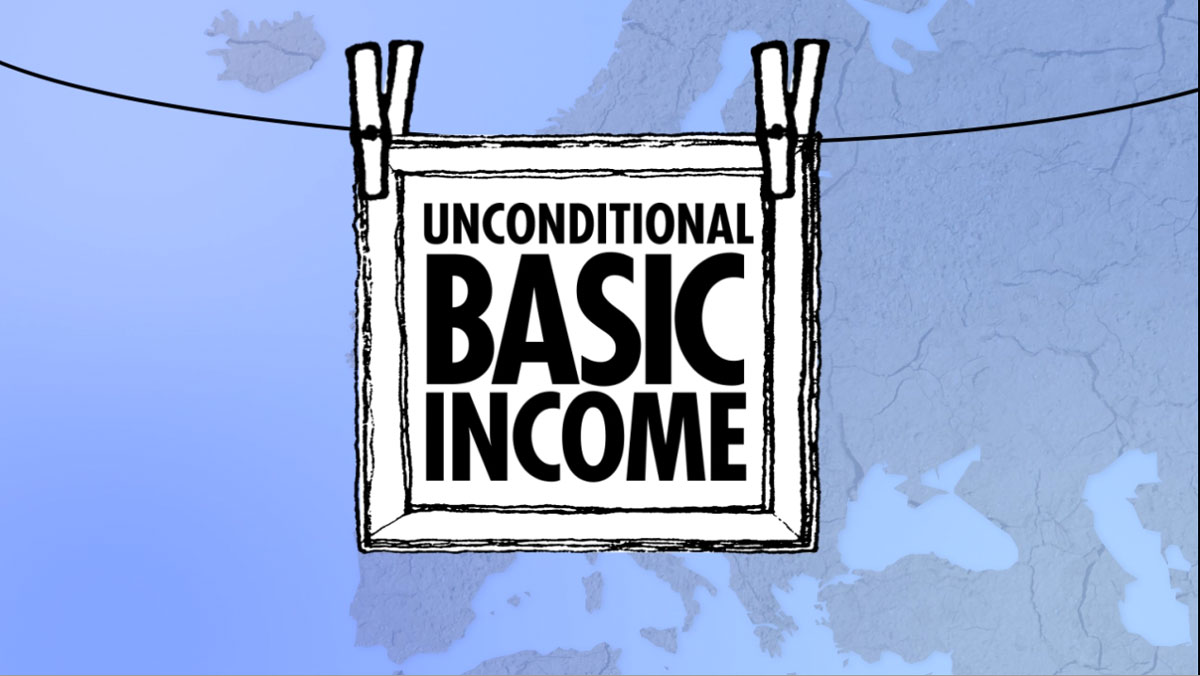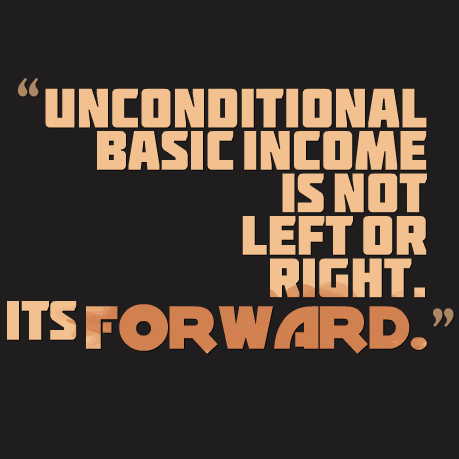 In the last post on Basic Income, I alluded to the pilot program that was just approved in Hawaii as well as the project in Ontario, Canada sponsored by the Poverty Reduction Strategy Office (PRSO). I had the pleasure of meeting Karen Glass, the Assistant Deputy Minister of the Ontario PRSO, who is a willing ally to give us tips and support in bringing Basic Income to Washington, DC. But first, before going too far with possibilities, I want to answer a fundamental question: what is basic income and more specifically, what is “universal basic income” (the brand of basic income I endorse)?
In the last post on Basic Income, I alluded to the pilot program that was just approved in Hawaii as well as the project in Ontario, Canada sponsored by the Poverty Reduction Strategy Office (PRSO). I had the pleasure of meeting Karen Glass, the Assistant Deputy Minister of the Ontario PRSO, who is a willing ally to give us tips and support in bringing Basic Income to Washington, DC. But first, before going too far with possibilities, I want to answer a fundamental question: what is basic income and more specifically, what is “universal basic income” (the brand of basic income I endorse)?
According to the Basic Income Action (BIA) Seattle Chapter (they gave free dollars at the conference at Hunter College in NYC!), universal basic income is a policy which guarantees every person a regular stipend, no strings attached, to meet their basic survival needs. It is
- universal: everyone receives it
- basic: it is just enough to meet bare survival needs
- income: it is simply cash in your pocket, no strings attached
This is truly a moment to shape how Basic Income can and will look in the United States, specifically in Washington, DC! According to website of Stanford University’s Basic Income Lab,
“There is an increasing need for in-depth academic research on how to design a universal basic income and how to evaluate its implementation – assessing the visions that underpin unconditional cash, the political and economic feasibility of various proposals, as well as its strengths and weaknesses as a measure to alleviate poverty, precariousness and inequalities…” (Basic Income Lab)
As a parent advocate loyal to ensuring that our local policies reflect the years of advocacy work to promote and protect the educational rights of children with disabilities. Yet, even as a such, I am well aware that children spend majority of their time outside of an educational institutions and that the replica watches economic state of the family is a major driver in the academic success of a child, with consideration to medical and other impairments that might compromise their ability to perform on set standards of achievement. Family structure, access to necessary services, knowledge of the laws and policies, influence and a host of other factors contribute to an unequal playing field for our children, and thus becomes their first (albeit indirect) lesson as to how politics works and how they are impacted by it. Access to books, clothes, food, shelter and even a non-stressed emotionally present parent, these are some of the things impacted by the family’s access to sufficient money to care for their children. A struggle to ensure that our city and our country adopt a universal basic income policy with dedicated and sustainable budgetary commitment is a lesson that teaches our children of all abilities and ourselves how to create equity in society – raising the emotional intelligence in all of us.
I don’t take for granted that parents are not a homogeneous population. We have different ideas and life experiences that inform these ideas, yet we have a common interest in a functional education system that gives our children an opportunity to meet and surpass a desire for them to succeed academically and in life in general. Children with disabilities are the most vulnerable when it comes to meeting this shared interest and failure to understand that the economic state of the family they are born in (or the zip code) determines not just their educational performance but their life expectancy and other health-related issues. So, for me, being an active participant in shaping the future our children with disabilities through advocating for universal basic income means taking account what more equity in the distribution of collective wealth (i.e. taxes) would do to impact the following:
1) Disability culture, a unique expression through the arts and other social expressions that binds those with non-typical abilities that goes beyond oppression and marginalization but represent a variety of worldviews informed by their different abilities that advance humanity. With more replica Rolex access to monies, low and middle income families would likely be able to afford more investments in understanding and participating in the unique cultural expression of our children with disabilities because we’d be making more stress-free choices in their care and development.
2) The reality of raising a child/children with disabilities is not just subject for pity but is a major duty filled with beauty and love that deserves to be understood so on-lookers at grocery stores and other spaces that might witness a tantrum or technically challenging moment with equipment or just real human moment of frustration can be understood completely and be observed without negative judgement. Access to guaranteed income, as basic income suggests, creates more balance in the lives of families and allows for a more harmonious relationship between parents and our non-typically developing children, as well as influences the quality of teachers and caretakers in education and otherwise because they too are making more liberated economic decisions. Imagine if our teachers, doctors, nurses and aides were financially more secure – what impact would that have on the level of care given to our loved ones with disabilities?
3) The great and unique intellectual capacity of children and youth with disabilities (even if their disability is labeled as an “intellectual disability”) are now supported by the landmark Supreme Court ruling in the Endrew F v. Douglas County School District. This means that a core value is that all children can learn, given the right tools in the least restrictive environment. And while this a huge ideological win in how we understand children with disabilities, it opens the doors to other considerations hindering greater access to educational services for our children that doesn’t underestimate their abilities to perform academically. I believe we would see greater educational outcomes for children with disabilities with less stressed parents and access to educators and caretakers that want to engage with our children just for the love of them and not because they need to pay the bills and so they merely tolerate them.
Basic income is a means to which families who otherwise wouldn’t qualify for Social Security Insurance (SSI) to care for their loved one with a disability would have choices beyond seeking loan options from predatory lenders. While this is a proactive way to solve an otherwise dismal outlook for the middle class, resistance against basic income perplexes me. In part 3, I hope to unpack my thoughts on the false equivalent between working and contributing to society, which appears to be rooted in ableism.
Yet, the problem that basic income solves is monumental. Unless you are in the position to understand the high cost of care for a child with a disability and hoops one has to jump to gain any kind of assistance because of the limited understanding of what impact this has at the replica Rolex watches intersection of race, class and gender for a single black mother (whose median wealth, despite her education, is $5). The limitation that there are too many stipulations that disqualify families (such as my own) that require assistance but do not classically fit a a neat definition of “poor” due to the means-tests whose metrics haven’t been updated since the 1960s or work requirements that usually associated with SSI or other social welfare programs.

The reason I believe that parents advocates of children with disabilities are the perfect advocates for universal basic income is because more than the average American, we understand how cumbersome and humiliating it is to expose so much of your personal financial history in order to potentially qualify for benefits that may or may not come to pass depending on the metrics of the means-test.
It is humiliating to have to prove your worth in order to be considered for additional funding that helps to provide the best quality of life for our loved ones with disabilities. We know better than most what it means to sacrifice making rent/mortgage or a family vacation or even simply select grocery items in order to pay for expensive long-term therapies and other care necessities when it comes to our children with disabilities. We know better than any other population that one should not have to “qualify” in order to need a helping hand in affording complex and unique medical procedure that may or may not be covered by insurance. And so, it is we, that stand to benefit the most from receiving a universal basic income.
There are many equations that can lead to better outcomes that result in equity among the services offered to provide FAPE in the least restrictive environment for all school aged children in DC public and public charter schools. Basic income offers a real solution to education related issues by addressing the principal socioeconomic issues that prevent or inspire more parent engagement and more productive out of school time.
[Part 1: (IDEA/Child Find) + Basic Income = Equity]
[Part 3: How Basic Income can Improve Child Find and School Outcomes]
In solidarity,
If you are interested in blogging or collaborating in research projects, please email motheringhands@mail.com.
